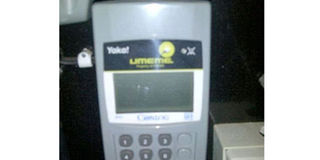Ways to ease sharing utility bills among tenants

Agreeing to how much each tenant contributes saves time. Photo by shabibah naKirigya
What you need to know:
Some of the fights among tenants are due to disagreements over utility bills. Here is how you can manage utility payment among tenants.
Sometimes it is hard for the landlord to allocate separate utility metres for every tenant and they end up installing few so that they can share. This, may however, bring issues when it comes to clearing bills because some tenants are not cooperative.
Sharing utility bills can help you reduce costs depending on how you agree to pay because there is no need to bear the total costs of living alone when you have other people you are staying with.
Decide how to split costs
Sabiiti Kiberu, a tenant in Rubaga, says splitting bills could also help you live a better life, which you would not have afforded had you been living alone.
Kiberu says splitting bills depends on your expenses, and what your rent agreement says you should pay for. This requires a dialogue with tenants so that you can pay according to usage.
“You have to make sure that all tenants in the apartment agree and are comfortable with the decision made. These include: amount, date, and method of payment, some tenants may prefer paying as group others to split the bills,” he advises.
Kiberu adds that, “ For electricity, to be fair, if you have several electrical appliances, it means you have to pay more than your colleagues even the number of family members matters.”
Collect money on the same date
Sheilah Namwanje, a property manager, says if you are sharing bills, you have to agree on the collection date so that you do not delay or get disconnected. You have to decide the convenient date for the tenants to pay and how much.
“You have to share a monthly bill to all tenants and receipts after paying to let them know that everything is cleared including the due date so that you just remind them when it is time to pay. This can help tenants know that the more they consume, the higher the pay,” she says.
Namwanje adds that pinning receipts stops other people from keeping the money intended for utility bills, which can result in accumulating bills and you end up paying fines for failure to pay on time.
“To avoid this you can also make payments using electronic means to make the transaction quick and flexible. Transferring money online provides quick response in terms of verification, and receipts,” she explains.
Electronic means help to prevent debts from accumulating.
“Tenants’ failure to pay utility bills sometimes leads to hostility and frustration among tenants,” Namwanje says.
Have an agreement
Namwanje says to be on good terms, you have to draft an agreement involving everyone who is supposed to pay for utility bills with terms and conditions. If different people are responsible for a specific bill, ensure all their names are recorded.
“You should keep clear records and serve everyone along with the money they are required to pay. This can be used as a back-up if any conflicts arise between tenants. If you find it hard to draft one, you can ask your landlord to help you draft one indicating the dos and don’ts,” she says.
Come up with constant rate
Ismail Mulindwa, a property manager, says while splitting utility bills, you have to make sure you come up with flat rates to avoid cheating some tenants, you have to look for other ways to distribute bills without collecting different amounts of money from the tenants.
He, however, agrees, that bills should also be divided according to the consumption rate of each tenant.
Mulindwa adds that if splitting bills becomes a problem, you can agree to have them take turns every month so that you do not have to go through the trouble of collecting monthly contributions from all tenants.




